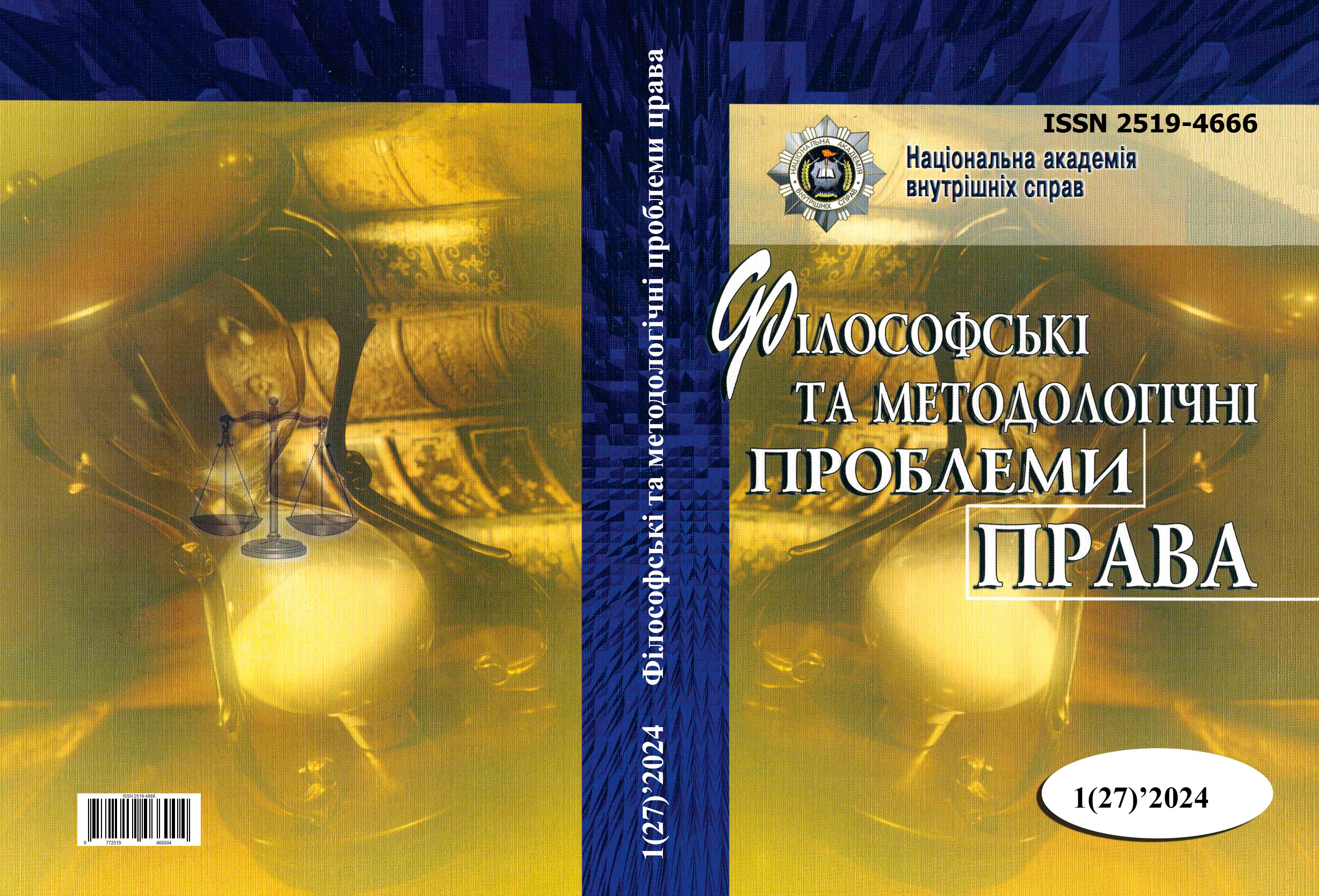Роль медіа у формуванні державності в Україні та США
Анотація
Анотація. У сучасних реаліях найбільшу цінність становить інформація, що має широкий спектр джерел – радіо, газети, журнали, телебачення та Інтернет. Це зумовлює потребу в урегулюванні організації і діяльності друкованих та онлайн медіа, що нині усвідомлюється пріоритетним завданням як в Україні, так і в інших країнах, зокрема Сполучених Штатах Америки. Метою статті є аналіз ролі медіа у формуванні державності зазначених країн. Для досягнення поставленої мети було використано такі методи дослідження: аналізу, синтезу, узагальнення, зіставлення, абстрагування, історичний, правовий тощо. Проаналізовано конституційно-правові засади організації та діяльності медіа в обох країнах, що дало змогу ретельно обґрунтувати їхнє місце й статус у сучасному громадянському суспільстві. Особливу увагу приділено питанню щодо порушень прав і статусу засобів медіа, встановлених у Конституції України, а також визначенню основних причин цих порушень. На підставі проведеного аналізу здійснено класифікацію медіа з огляду на ступінь залежності від держави, що сприятиме кращому розумінню специфіки їхньої діяльності. Практична цінність наукової статті полягає в тому, що запропонований у ній аналіз діяльності медіа в Україні та Сполучених Штатах Америки з позиції їх впливу на формування держави й суспільства загалом сприятиме підвищенню ефективності медійної політики та захисту свободи слова, а отже, має важливе значення для розвитку демократії та прав людини.
Ключові слова: інформація; держава; свобода слова; медіаресурси; контент; політика; журналіст; громадськість.
Завантаження
Посилання
Brennan, M. (2022). Media Confidence Ratings at Record Lows. Retrieved from https://news.gallup.com/poll/394817/media-confidence-ratings-record-lows.aspx.
Burlakov, S.V. (2020). The role of mass media in the development of national information policy. Legal Science, 7(109), 45-51. doi: 10.32844/10.32844/2222-5374-2020-109-7.06.
Darcy, O. (2019). USA Today owner Gannett merges with GateHouse Media to form massive newspaper company. Retrieved from https://edition.cnn.com/2019/08/05/media/gannett-gatehouse-merger/index.html.
Farbota, M.R. (2015). Legal status of mass media in the Internet environment. Information and law, 2(14), 92-97. doi: 10.37750/2616-6798.2015.2(14).272698.
Fayvishenko, D., & Sidielnikov, D. (2023). Media design: trends and perspectives. Journalism and advertising: vectors of interaction: theses add. V International science and practice conference (pp. 18-19). Kyiv. doi: 10.31617/k.knute.2023-03-22.
Hudoshnyk, O.V. (2021). The history of journalism in the times of presentism: the experience of the USA. Communications and Communicative Technologies, 21, 13-21. doi: 10.15421/292102.
Kaplii, O.V. (2013). Classification of mass media: constitutional and legal issues. Actual problems of politics, 50, 35-46.
Kikalishvili, M.V. (2019). The role of mass media in the prevention of corruption crimes. Actual problems of domestic jurisprudence, 2, 102-106.
Larin, E.O. (2020). Legal regulation of the realization of the right to information: experience and approaches of foreign constitutionalism. Science release public and private rights, 2, 37-43. doi: 10.32844/2618-1258.2020.2.7.
Liudvyk, I.V. (2016). Mass media as an institution of civil society: constitutional and legal aspects. Bulletin of the Luhansk State University of Internal Affairs named after E. O. Didorenko, 4(76), 25-30.
Lysyniuk, M.V. (2020). The language of mass media as an indicator of the linguistic culture of modern society. Culture and modernity, 2, 33-38. doi: 10.32461/2226-0285.2.2020.222243.
Mitchuk, O., & Horbenko, H. (2024). Modern information society and the new period of journalism. Image, 1(44), 150-157. doi: 10.21272/Obraz.2024.1(44)-150-157.
Moroz, N.O. (2012). The role of the mass media in the formation of the civil society of Ukraine. Humanitarian journal, 2-3. Retrieved from https://ir.nmu.org.ua/handle/123456789/570.
Oleksiuk, T.М. (2023). International soft law standards as guidelines for balancing the right to information and the protection of national security. Law of Ukraine, 4, 86-96. doi: 10.33498/louu-2023-04-086.
Panov, A.V., Panova, A.O., & Chaibynets, M.V. (2024). Mass media of the USA. The latest technologies in the development of science, business and education: proceedings of the XVII International Scientific and Practical Conference (pp. 129-134). London. doi: 10.46299/ISG.2024.1.17.
Protsenko, O. (2018). The right and guarantees of freedom of thought and freedom of mass information. Enterprise, economy and law, 4, 156-160.
Ulianchenko, Yu.O. (2023). The essence and content of the principles of the constitutional and legal status of mass media in Ukraine and the USA. Kyiv Law Journal, 1, 58-63. doi: 10.32782/klj/2023.1.9.
Vitkova, V.S. (2021). The system of guarantees of the constitutional right to information. Juris Europensis Scientia, 2, 30-33. doi: 10.32837/chern.v0i2.199.
Volotko, E.V. (2019). The role of mass media in forming a positive image of the state. State and regions, 4(68), 82-87. doi: 10.32840/1813-3401-2019-4-14.
Yenin, M.N., & Severynchyk, O.P. (2021). Sociology of public opinion and mass media. Kyiv: KPI im. I. Sikorskoho.
Переглядів анотації: 70 Завантажень PDF: 178
Авторське право (c) 2024 Філософські та методологічні проблеми права

Ця робота ліцензується відповідно до Creative Commons Attribution-NonCommercial-NoDerivatives 4.0 International License.
- Автори залишають за собою право на авторство власної праці та передають журналу право першої публікації цієї роботи на умовах ліцензії Creative Commons Attribution License, яка дає змогу іншим особам вільно розповсюджувати опубліковану працю з обов’язковим посиланням на авторів оригінальної роботи та першу публікацію статті в цьому журналі.
- Автори мають право укладати самостійні додаткові угоди щодо неексклюзивного розповсюдження роботи у тому вигляді, в якому вона була опублікована в журналі (наприклад, розміщувати статтю в репозитарії установи або публікувати у складі монографії), за умови збереження посилання на першу публікацію роботи у цьому журналі.
- Політика журналу дає змогу і заохочує розміщення авторами в Інтернеті (наприклад, у електронних сховищах установ або на особистих веб-сайтах) рукопису статті як до подання цього рукопису до редакції, так і під час його редакційного опрацювання, оскільки це сприяє продуктивній науковій дискусії та позитивно впливає на оперативність та динаміку цитування опублікованої роботи.




